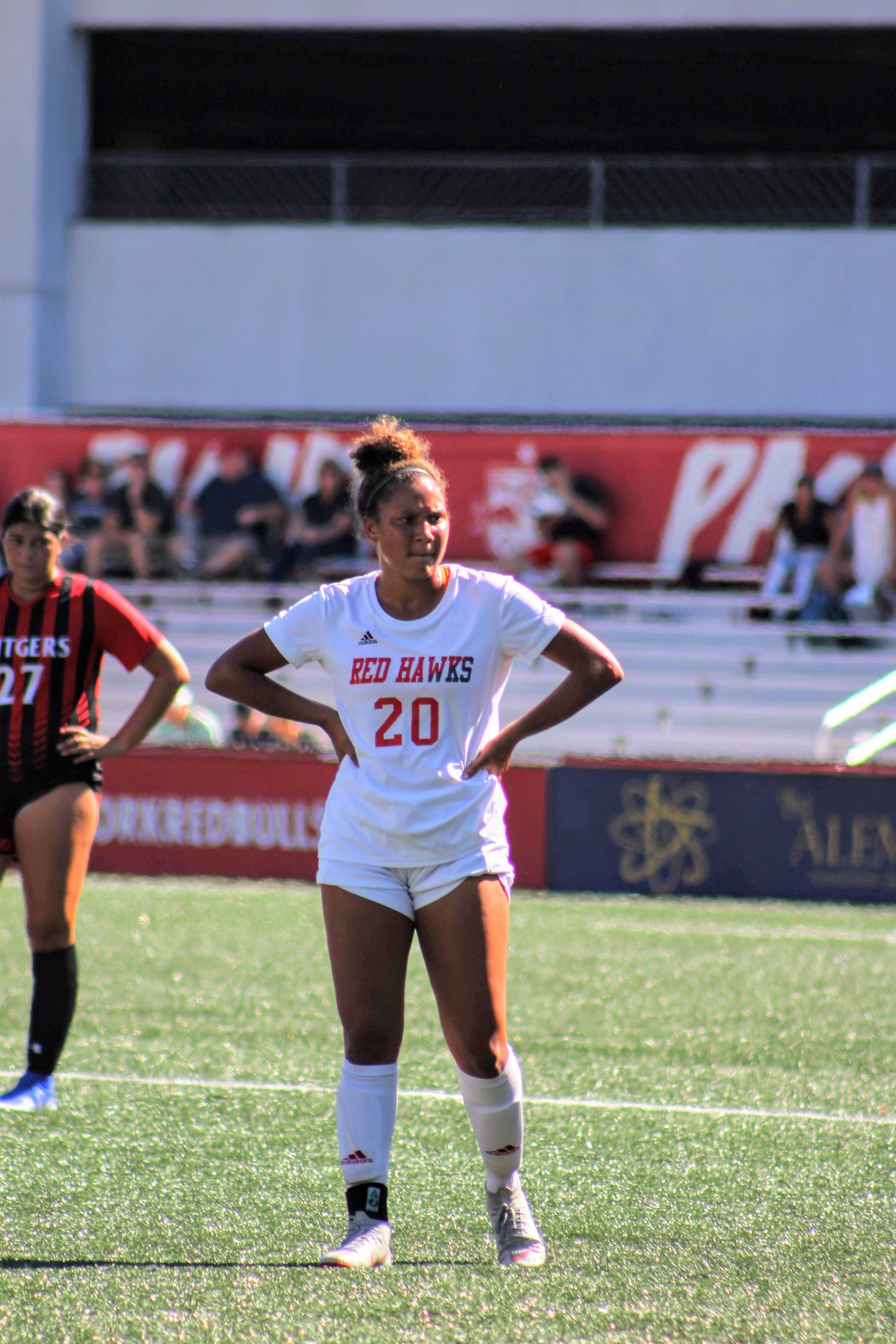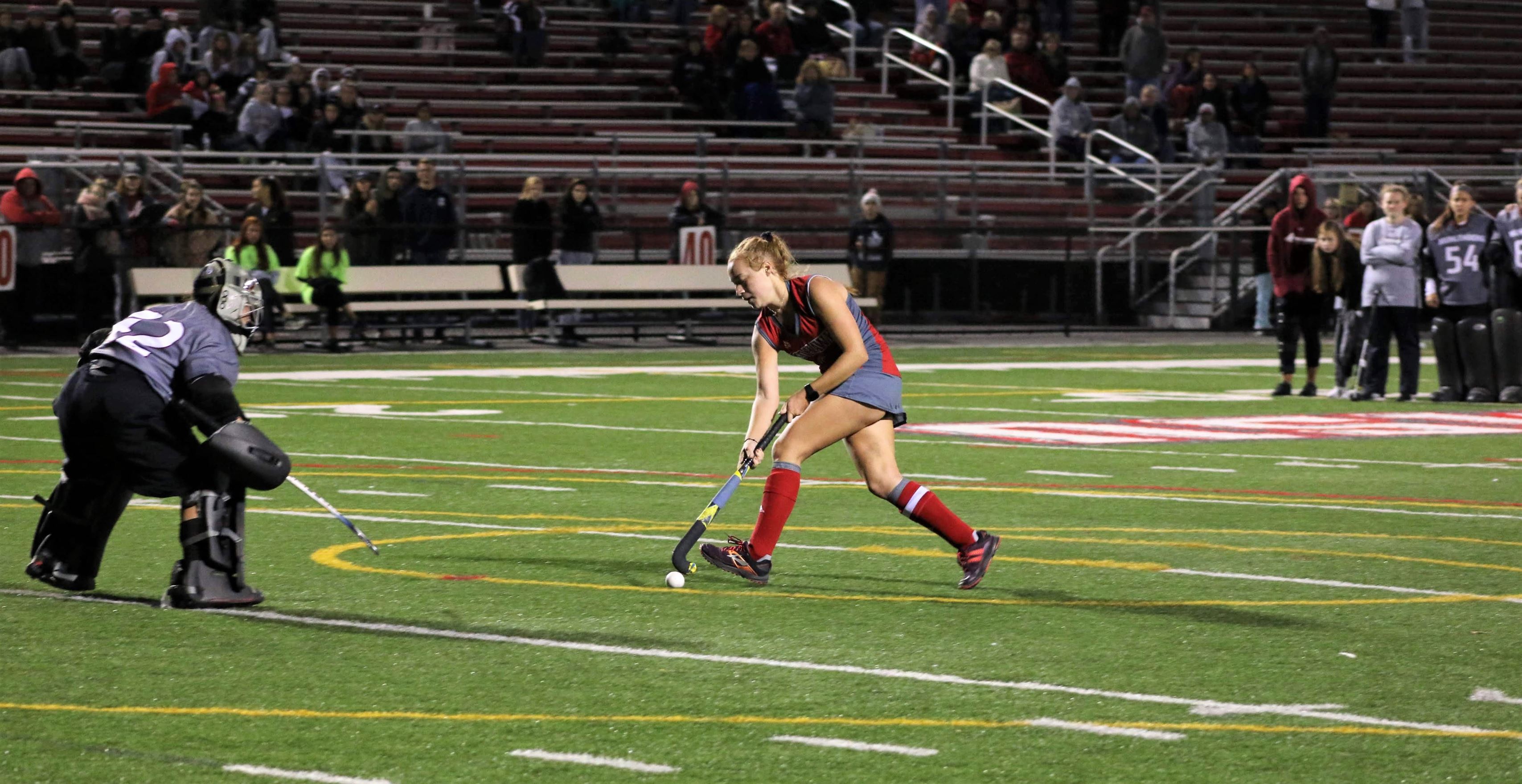The pressure was mounting for the New Jersey Athletic Conference (NJAC) to decide on whether to hold a fall sports season this year. Throughout the month of July, many conferences around the region had decided to postpone or cancel their fall season, and it was looking more and more likely that the NJAC would suffer the same fate.
Rumors began to spread toward the end of the month that the NJAC had cancelled their season, and the official announcement came on July 28. The NJAC Presidents Council and Board of Athletic Administrators came to the decision that no fall sports would be played in 2020 due to the ongoing coronavirus (COVID-19) pandemic, and that the conference will further explore the possibility of fall sports athletes competing in the spring of 2021.
According to Montclair State athletic director Robert Chesney, the restrictions put in place by the NCAA in terms of how fall sports could proceed moving forward played a key role in the conference’s decision.
“Some of the COVID-19 mandates that came forward from the NCAA were quite restrictive,” Chesney said. “It would’ve been tough for all NJAC schools to meet those requirements in order for us to have the season.”
As for Montclair State, they seemed to already be prepared for the possibility of a fall sports season. In mid-July, the university had already put in their own protocols for their athletic programs in the “Red Hawk Restart” plan, which included masks and social distancing mandates, daily screenings and guidelines for quarantining athletes.
This plan was released before the NJAC made their decision on fall sports. However, Chesney plans on sticking with the original plan.
“We are going to have student athletes practicing in the fall,” Chesney said. “Even though they unfortunately won’t be competing against other schools, we’ll be following the protocols that we put in place [earlier].”
According to Chensey, the plan allows for flexibility, as it is still unknown how this pandemic will progress moving forward.
“We prepared the plan knowing that change is very possible and most likely will happen,” Chensey said. “The most important thing that we talked about is being flexible, and being able to adapt, and our coaches understand that. So while we have a good plan and we plan to move forward, hopefully, things get better and not worse, but we are ready either way.”
Practices will look much different for coaches and athletes moving forward. Coaches must have masks on while on the sidelines and players must have masks on if they are not participating in any physical activity. Teams will have smaller breakout groups for practices, splitting the field for it. Team meetings will also mostly be held online.

Forward Tori Rolls waits for play to resume during a 2019 soccer game against Rutgers Camden.
Ben Caplan | The Montclarion
As for field hockey head coach Ellien O’Reilly, her preseason training schedule will look much different than from years past. She is confident in the university’s guidelines and approach.
“I don’t think we’ll have too many limitations,” O’Reilly said. “The athletic administration has done a great job of giving us positive opportunities to train together. We have our first in-person practice on September 1st, and we’ll practice for six weeks. We are just really excited to have the opportunity to be back out on the field together.”
While the news of the season being postponed was certainly upsetting for everyone, O’Reilly and her team are looking on the bright side.
“The news was disappointing, especially for our seniors since this was their expected senior season,” O’Reilly said. “We don’t necessarily know what the future holds for them although we hope to see them next year. But also at the same time we are thankful and grateful to have the opportunity to practice together in the fall.”
The men’s soccer team in particular was looking forward to a grand 2020 season. The team had just made a deep run in the NCAA Tournament last season and was optimistic about how the upcoming fall season would play out.
Oscar Sanchez, star forward for the men’s soccer team, shared his disappointment with the decision.
“Our initial reaction [as a team] was sadness,” Sanchez said. “It was a little frustrating because it ruined not only our spring semester, it ruined summer and now the entire season. Last year, we left with a little bit of an edge cause we were seconds away from going to a Final Four in the NCAA Tournament. We were all prepared and ready to go hard this season, but now we realize it isn’t in our hands.”
Sanchez realizes that even if there is a spring season, it may not include a whole lot of, if any, postseason play. He believes that the fall training will be extremely pivotal to the success of the team.
“To be honest, we are very focused on training on our own until the guidelines get better and things get easier, so we can take advantage of the fall training to get better mentally and physically,” Sanchez said. “We don’t know if there will be an NCAA Championship or an NJAC Championship and it’s going to be weird but we are going to be focused on being more ready and prepared than anyone else.”
One concern that many people are asking about is the safety of players while practicing and/or competing, as social distancing and mask wearing cannot really be achieved while in live action.
While Sanchez is nervous about the threat of COVID-19, he plans on continuing to play the sport he loves with caution.
“The COVID-19 pandemic in general is nerve-wracking,” Sanchez said. “But as athletes, if you love your sport, you’re gonna do whatever you can [to play it]. I’m going to be as cautious as possible, I know the [university’s] guidelines are as cautious as possible, so I’m not really nervous because I want to get back to playing. I will take as many cautionary steps as I need to take to make sure that I’m healthy and ready to go.”
There are still so many unanswered questions in regards to how fall sports would look if it were to be played in the spring. It is still unclear if fall sports teams will follow a traditional schedule, as it seems teams will be preparing to play mostly in-conference games at the very least.
Another big question is how teams will be able to share Sprague Field. There could potentially be four teams actively using the field on a regular basis, assuming that spring sports teams also have their seasons.
Everything is currently in the works and still being tweaked, according to Chesney. While he understands the circumstances are tough for these fall sports teams, he also believes that eventually we will have sports back on campus. He even thinks there are some positives to take out of all of this.
“It’s been a difficult circumstance not only in the athletic world but everywhere, there’s people out there that are dealing with more dire circumstances than we are,” Chesney said. “We are keeping everything [in] perspective, and we understand that we are going to have sports back soon. Teams are going to have the chance to do some different things in fall than what they have done in the past, and it’s going to be a teaching and learning experience for everyone, and we are all looking forward to that.”



